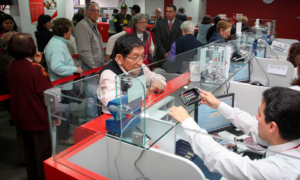One of the most significant agreements reached by the Consejo Superior del Trabajo (CST) at its recent session was the creation of mechanisms to facilitate access to bank credit for the informal sector.

The initiative, part of a package of seven strategic agreements, represents an important step toward the country’s economic revitalization by providing small businesses and informal workers with the opportunity to integrate into the financial system and access products such as savings accounts, lines of credit, and working capital financing.
“We have conducted a study, and the Inter-American Development Bank (IDB) already has a line of credit to support this process. It is also possible to raise international funds from multilateral banks that aim to strengthen the transition from informality to formality”, explained Labor Minister Rolando Castro.
Castro also emphasized that this effort is part of a comprehensive vision to achieve one of the government’s major goals: the creation of formal and sustainable employment. “We have already surpassed one million jobs in the country. It is logical that, if there is economic growth and productivity, employment will continue to be generated, and that is one of the Council’s main objectives”.

Businesses will be able to access banking services
With the implementation of these agreements, thousands of small businesses that currently operate informally could enter the formal financial system, which would allow them to: Access loans with better terms.
Strengthen their credit history, formalize labor relations. Improve their competitiveness and productivity. National banking, for its part, would benefit by expanding its customer base and reducing credit risks by dealing with legally established and regulated businesses.
More agreements: Support for the textile sector and union strengthening
In addition to formalization and access to credit, the CST also achieved important progress in other sectors. In the case of the textile industry, it was agreed to streamline the machinery reimportation process, which can currently take up to three months, affecting company productivity.

Another relevant point was the commitment that no union may file international complaints against textile companies without first exhausting internal channels through the Ministry of Labor. This seeks to protect the country’s image vis-à-vis international brands that contract production in El Salvador.
The Consejo Superior del Trabajo will meet again on october 14, with the expectation of continuing to consolidate consensus that will positively impact the labor market and the national economy.
You might also read this:







